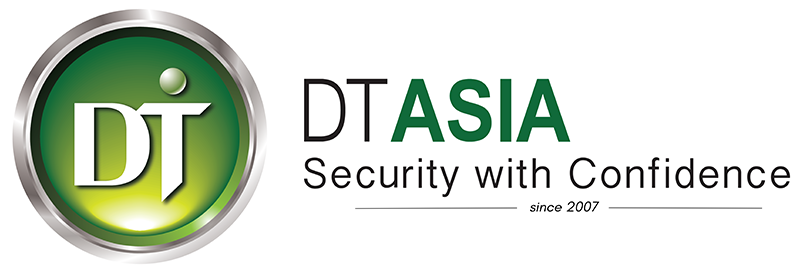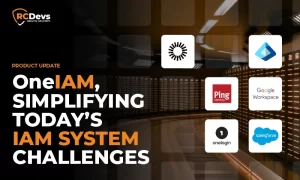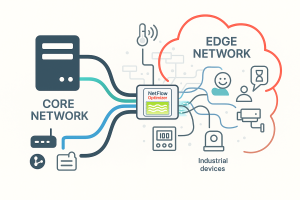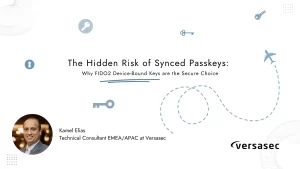
What is Needed to Move Large Files?
Big files need big solutions, or rather solutions capable of reliably and securely moving files in and out of an organization. Instead of relying on free or open-sourced solutions that “might” move a big file, consider your organization’s needs around file sizes, security, encryption, compliance requirements for auditing and reporting file transfer activity, reliability, and automation. Yes, file size does matter, but it’s just one piece of the data movement puzzle for most organizations.
What is a Large File?
A large file could be any file that generates that dreaded, “Message Cannot be Delivered – File Size Too Large” screen. In many cases, this occurs when trying to send a file via a popular email client, such as Gmail or Outlook. Many email services cap message size and attachments at about 25 MB or even 10 MB, a size that is often too small for many files containing business-critical data.
“Even if your file makes it through an email client’s size cap, delivery is not necessarily guaranteed,” said Chris Bailey, Senior Product Manager, MFT at Fortra. “Unfortunately, senders often don’t even know the file didn’t make it to its destination until long after they hit ‘send,’ which can have untold repercussions for the flow of business information.” A file transfer solution with auto-resume as well as an active-active framework can provide the greater high availability needed in mission-critical environments
And file sizes are not getting any smaller. With more demand for files containing media-rich content, an accelerated file transfer solution, such as Fortra’s FileCatalyst, can help navigate the barriers of huge size, high-resolution, and distance that live broadcast or movie files often encounter.
What NOT to Do When Sending Large Files
- Use a free service if confidentiality or compliance matters: If you’re just sending a file with your department’s Friday treat schedule, go ahead and use that free service or email with the attachment. If, however, your organization needs to meet compliance requirements, needs to provide an audit trail of file activity, have a huge file to send, or fall under privacy and data protection regulations, free or email options are not your best choice. The security and delivery assurance you need is likely not built into these free options.
- Depend on a homegrown script to handle large files. This time-consuming and potentially error-prone method might get that large file to its destination but if changes are needed and the original script writer is unavailable your large file may be in limbo. IT departments are already stretched thin – spending too much time and effort on a homegrown script just isn’t a judicious use of time, when there are more secure and automated options such as managed file transfer, which can shepherd files along with multi-step, automated workflows.
- Send those big files unencrypted. Your data is one of your organization’s greatest assets. Unfortunately, that data is also highly coveted by cybercriminals and vulnerable to human error. Automatically encrypting files at rest and in motion can help protect your organization and your customers’ data. With secure file transfer, you can even decide which encryption protocol you or your trading partners wish to use. GoAnywhere MFT supports Open PGP, SFTP, FTPS, AS2 or AS4, ZIP with AES, and more.
How to Get Around File Size Limitations
Rather than risk a file not getting to its destination, organizations can use a dedicated file transfer method, such as a managed file transfer (MFT) solution or an email add-on that lets users send messages and files as “secure packages” on an ad-hoc basis.
Non-delivery is a non-issue with secure file transfer solutions such as Fortra’s GoAnywhere MFT. Why? There are no size limits on files, plus auto-resume and integrity checks help keep those files moving along as intended, even if they encounter network connectivity issues.
Ensure Your File Transfer Solution Can Scale
Organizations that require reliability around their data sends should be looking at solutions that offer high-availability and clustering. “Downtime can impact organizations and their bottom line, as well as their reputation,” noted Bailey. “Unexpected outages can be the result of cyber-crime, severe weather, or other network-wide outages and can really put a strain on resources. Using software that incorporates high availability and clustering can help mitigate any hard or soft downtime costs or impacts.”
Downtime has substantial costs as Uptime Institute’s 2022 Outage Analysis Report reveals. Since 2019 costs for outages has increased 39%. And the costs for over 60% of outages can top out at more than $100,000.
Seek Solutions That Help Meet Compliance Requirements
Many industries, including healthcare, banking and finance as well as the government have stringent compliance requirements around the transparency of file transfer activities. Solutions that offer robust auditing and reporting capabilities can help meet those obligations.
Look for a Large File Transfer Tool that Automates Processes
With repetitive, manual tasks around transferring large files comes the risk of human error. Automating the process helps mitigate those risks and frees up your staff for more high-level priorities. GoAnywhere’s Automated Workflows and automatic encryption offer a centralized, user-friendly way to both automate tasks, reduce human error risks, and add security that off-the-shelf tools cannot.
Integrate Your Data Transfer Process with Cloud Applications
When your file transfer software solution easily integrates with those cloud applications you use daily such as SharePoint, Google Drive and hundreds of others, you make it easier for your employees to choose the most secure solution to exchange information in and out of your organization’s network rather than put up barriers to utilizing a secure solution.
Source: https://www.goanywhere.com/blog/how-mft-helps-move-large-files
About DT Asia
DT Asia began in 2007 with a clear mission to build the market entry for various pioneering IT security solutions from the US, Europe and Israel.
Today, DT Asia is a regional, value-added distributor of cybersecurity solutions providing cutting-edge technologies to key government organisations and top private sector clients including global banks and Fortune 500 companies. We have offices and partners around the Asia Pacific to better understand the markets and deliver localised solutions.










